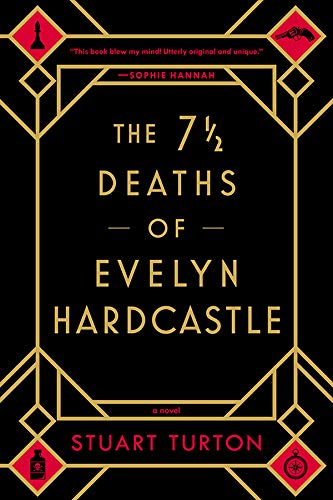For a second consecutive year, I must concede that a year's-best posting this early in November might seem, well, early. OTOH, pandemic. Supply-chain woes. Postal/UPS/FedEx slowdowns. Especially if you (or your reading giftees) prefer reading material in paper and ink, you may want to do your holiday shopping early rather than late. In any event, Black Friday and Cyber Monday will soon be upon us.
If you find none of that convincing? The way 2021 has been, surely anything meriting the label "best" is welcome. Distraction via the books that follow certainly helped me cope with this dreadful, pandemic-ridden year. Not to mention that if ever there were a year to support one's favorite authors, this (again!) is it.
As always, I read a lot: as research, to keep current with the genre in which I write, and simply for enjoyment. Before the holiday shopping onslaught, I've taken to volunteering a few words about the most notable books from my reading (and sometimes re-reading) thus far in the current year. And a (very small) celebratory woohoo: this is my tenth such post in the series.
What's impressed me so far this year? Read on ....
Note: the order of books in the following is not intended to signal anything.
SCIENCE FICTION
The Martian, by Andy Weir (2014). This was a reread -- and I found it every bit as enjoyable as the first time.
Some of you may have encountered a B (at best) movie from 1964 called Robinson Crusoe on Mars. Weir does the same premise right, throwing in a daring rescue. The movie version of Weir's book, with Matt Damon as the stranded astronaut, is also great.
The Martian Race, by Gregory Benford (1999). A second adventure set on Mars. If you're sensing a theme ... you're right. As I announced back in June ("The cat in the bag being no longer like Schrödinger's"), I'm under contract to write my own Martian adventure. I've read or reread quite a few Mars-centric titles since -- call it competitive analysis -- and these two simple stood out. But I'm not only reading about Mars, hence ...
Three Laws Lethal, by David Walton (2019). A rollicking, cyber-without-the-punk adventure by a computer-savvy author. The title is a fitting homage, of course, to Isaac Asimov's famous Three Laws of Robotics.
(For those of you keeping score at home, last year I recommended Walton's more biology themed The Genius Plague) (2017)).
GENERAL FICTION
I ran across two utterly quirky, deeply engrossing, hard even to characterize, novels last year by Stuart Turton. His debut novel, The 7 1/2 Deaths of Evelyn Hardcastle (2018), is a seemingly fantastical murder mystery, in which the protagonist wakes up, again and again, in a different body, reliving the same day, trying to solve or prevent a pending murder. It's surely a mystery -- but the case can be made it's also SF.The second, The Devil and the Dark Water (2020), is another genre crossover. Once again, it's a mystery, but also an historical novel. Sort of like Sherlock Holmes -- on the high seas, in the seventeenth century, with (maybe) a demon thrown in.NONFICTION
The Sirens of Mars: Searching for Life on Another World, by Sarah Stewart Johnson (2020). (Have I mentioned having an interest in Mars this year? This is far from the only nonfiction title about Mars I've read, either -- just the best.) Johnson, a planetary scientist, provides an eminently readable, and at the same time personal, survey of the study and exploration of Mars. Early astronomical observations. Flyby, landing, and orbital missions. Martian meteorites found on Earth. It's all there, informatively and entertainingly presented.
Johnson, a planetary scientist, provides an eminently readable, and at the same time personal, survey of the study and exploration of Mars. Early astronomical observations. Flyby, landing, and orbital missions. Martian meteorites found on Earth. It's all there, informatively and entertainingly presented.
And finally ...
A World Undone, by G. J. Meyer (2006). Another sweeping look at history, this time at the run up to, and events of and immediately following from, World War I. Certainly, the major military campaigns are covered, but the focus is on diplomatic efforts, diplomatic missteps, and consequences.And there you have what I think is a lot of great reading.










































No comments:
Post a Comment